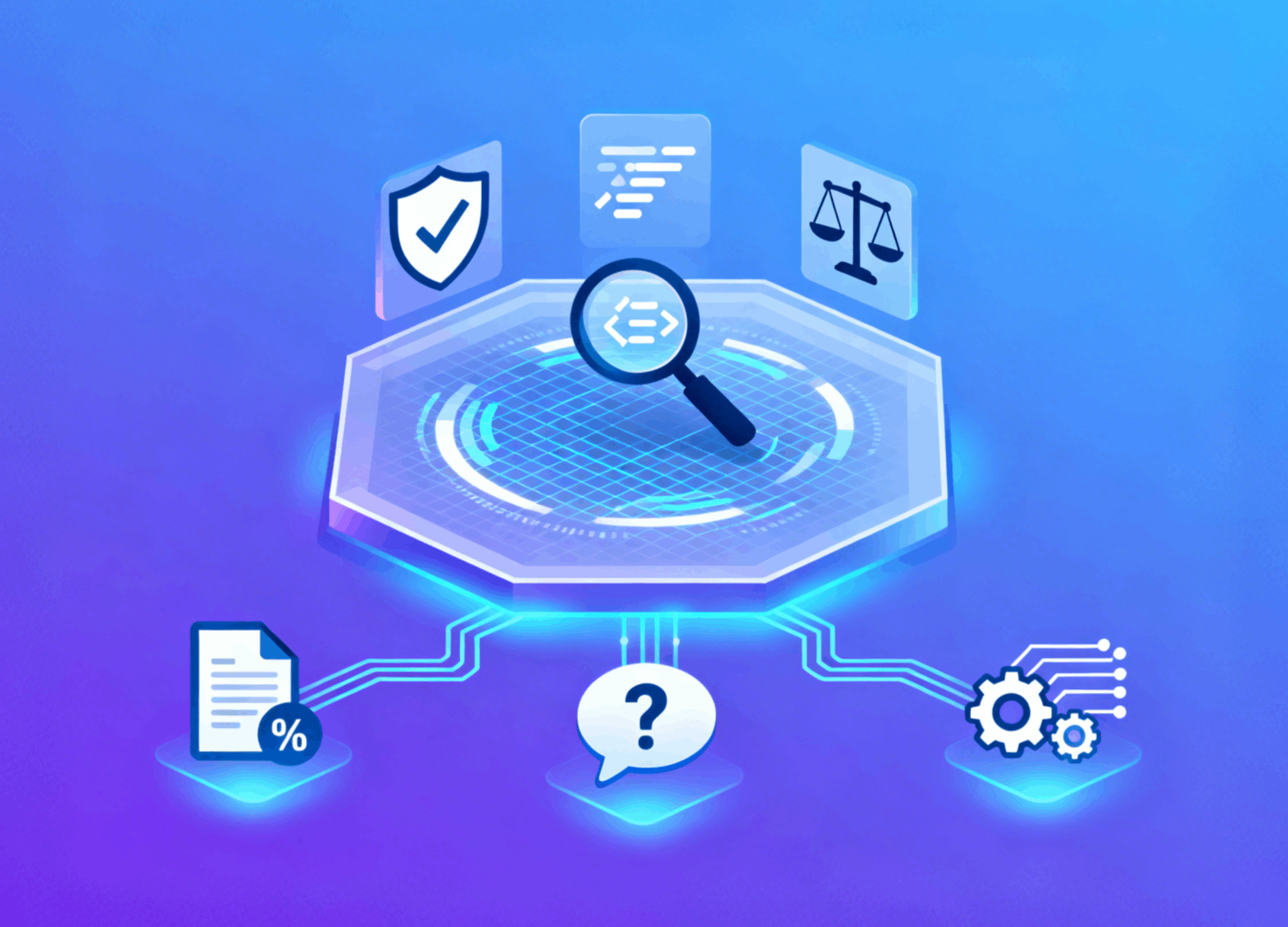
Top AI Content Detectors: Essential Tools for 2025
With the proliferation of AI-generated content, tools like AI Content Detector, AI Checker, and Chat...
The rise of artificial intelligence writing tools has fundamentally transformed how students approach their med school essays, but it has also prompted medical schools to implement sophisticated AI detector systems. As aspiring physicians craft their personal statements and secondary essays, understanding how these detection technologies work has become essential for maintaining the integrity and authenticity that admissions committees demand.
Medical school application essays represent more than just writing samples—they offer admission officers a window into your character, motivation, and potential as a future physician. With approximately 65% of medical schools now utilizing some form of AI detection technology during the admissions process, applicants must navigate this new landscape carefully while preserving their authentic voice.
AI detector technology has evolved significantly over the past two years, employing sophisticated algorithms that analyze writing patterns, sentence structure, and linguistic markers. These systems don't simply flag content as AI-generated or human-written; instead, they provide probability scores that admissions committees use as one factor among many in their holistic review process.
Modern AI detectors for med school essays operate through multiple analytical layers. They examine perplexity (how predictable the text is), burstiness (variation in sentence length and complexity), and semantic coherence. Machine learning models trained on millions of text samples can identify patterns typical of AI-generated content, such as consistently moderate vocabulary complexity, uniform sentence structure, and lack of personal idiosyncrasies.
The detection systems used by medical schools typically analyze several key indicators:
Medical schools have implemented AI detector systems not primarily to reject applicants, but to ensure fairness and maintain the integrity of their selection process. The AAMC (Association of American Medical Colleges) has emphasized that medical education requires students who demonstrate genuine commitment, ethical judgment, and authentic communication skills—qualities difficult to assess if essays are artificially generated.
Admissions committees understand that the essay-writing process itself serves as a developmental experience, forcing applicants to reflect deeply on their motivations, experiences, and goals. When AI tools shortcut this process, schools miss critical insights into an applicant's readiness for the rigors of medical education.
When AI detector systems flag med school essays with high probability scores for artificial generation, the consequences extend beyond simple rejection. Medical schools maintain databases tracking integrity concerns, and patterns of suspected AI use can affect future applications, even to different institutions.
Recent data from the 2023-2024 application cycle revealed that approximately 8-12% of submitted personal statements triggered AI detection alerts. While not all flagged essays were automatically rejected, applicants identified through AI detector systems faced additional scrutiny, including:
ConsequenceFrequencyImpact LevelAdditional essay requirement | 47% | Moderate
Interview question focus on authenticity | 68% | Moderate-High
Application rejection | 23% | Severe
Integrity notation in file | 35% | Severe
While AI detector technology continues improving, false positives remain a legitimate concern. Some applicants with naturally formal writing styles, extensive vocabulary, or engineering/technical backgrounds may inadvertently trigger detection algorithms. Understanding this risk underscores the importance of incorporating distinctive personal elements and maintaining documentation of your writing process.
Creating compelling med school essays that pass AI detector scrutiny while genuinely representing your experiences requires intentional strategy and authentic reflection.
Before writing a single word, invest time in genuine self-reflection. Document specific memories, conversations, and moments that shaped your decision to pursue medicine. The richness of concrete detail—the smell of antiseptic in your volunteer clinic, the exact words your mentor said during a difficult patient case, the tremor in your hands during your first suture—creates authenticity that AI cannot replicate.
AI-generated content typically lacks the quirks, idioms, and rhythm patterns unique to individual writers. Your med school essays should sound like you—not a polished corporate statement. Include:
Generic statements about "wanting to help people" or "being passionate about science" trigger AI detector alerts because they lack specificity. Instead, reference particular experiences, exact timeframes, named individuals (with privacy considerations), and quantifiable outcomes from your activities.
Rather than presenting polished conclusions, walk readers through your evolving understanding. Discuss initial misconceptions, moments of doubt, and how specific experiences changed your perspective. This developmental narrative demonstrates authentic growth that AI-generated content typically cannot convincingly portray.
Understanding what triggers AI detector algorithms helps you avoid unintentional flags while maintaining authenticity in your med school essays.
While your essays should be well-edited, prose that is too perfect—with no natural variation, no occasional stylistic liberties, and no personality—often triggers detection systems. Real human writing contains subtle imperfections that reflect authentic thought processes.
AI-generated content often describes emotions rather than conveying them. Compare "I felt sad when the patient died" with "I stood in the hallway after his death, focusing on the squeak of my shoes against linoleum because thinking about his empty room felt impossible." The latter shows rather than tells, demonstrating genuine emotional processing.
Phrases like "moreover," "furthermore," and "in conclusion" appear with higher frequency in AI-generated text. While not prohibited, overreliance on these formal transitions can elevate AI detector scores. Natural, conversational transitions better reflect authentic writing.
When essays demonstrate sophisticated medical knowledge in one paragraph but superficial understanding in another, AI detector systems may flag inconsistency. Ensure your demonstrated knowledge aligns with your actual experience level and remains consistent throughout.
Beyond AI detector concerns, the ethical dimension of using AI tools for med school essays deserves serious consideration. Medical education fundamentally depends on trust, integrity, and authentic self-representation—values that begin with your application.
Physicians regularly face situations requiring ethical judgment under pressure. Admissions committees view application integrity as a predictor of professional integrity. Using AI to substantially write your essays misrepresents your abilities and raises legitimate questions about your judgment in future clinical scenarios.
Not all AI interaction constitutes academic dishonesty. Generally acceptable uses include:
The critical distinction lies in authorship—you must generate the ideas, experiences, reflections, and specific content that forms your essay's substance.
Before submitting your med school essays, consider running them through publicly available AI detector tools to identify potential concerns. While these free tools don't perfectly replicate admissions office systems, they provide useful feedback.
Run your essay through multiple detection platforms, noting any consistently flagged sections. High detection scores don't necessarily indicate AI use—they may simply highlight areas needing more personal detail or distinctive voice. Revise flagged sections by adding specific examples, personal observations, and unique perspectives.
Keep dated drafts, brainstorming notes, and outline versions of your essays. This documentation proves your authentic development process if questions arise. Some applicants even maintain writing journals tracking their essay evolution over weeks or months.
If your med school essays trigger AI detector alerts—whether accurately or through false positives—you may face interview questions probing essay authenticity. Preparation ensures you can confidently address these concerns.
When discussing your essays during interviews, demonstrate deep familiarity with every detail, example, and reflection. Admissions officers may ask you to elaborate on specific experiences, explain your thinking process, or discuss sections in detail. Your ability to spontaneously expand on essay content with additional anecdotes and insights proves authenticity more effectively than any detector score.
Practice articulating:
The intersection of AI detector technology and med school essays represents more than a technical challenge—it underscores the fundamental importance of authenticity in medical school admissions. While detection systems continue evolving, the most effective strategy remains unchanged: write essays that genuinely represent your experiences, motivations, and voice.
Your unique journey to medicine cannot be replicated by artificial intelligence. The specific patients you've encountered, the mentors who shaped your understanding, the failures that taught resilience, and the moments of clarity that confirmed your calling—these form a narrative that only you can tell. Admissions committees don't seek perfect prose; they seek authentic individuals committed to medicine's demanding but rewarding path.
As you craft your med school essays, remember that the writing process itself—the reflection, revision, and refinement—develops the communication skills you'll need throughout your medical career. Embrace this opportunity for genuine self-examination, and trust that your authentic voice, combined with thoughtful writing and honest reflection, will resonate with admissions committees far more effectively than any artificially enhanced alternative.
No, AI detector systems provide probability scores rather than definitive proof. They analyze patterns consistent with AI-generated content but cannot conclusively determine authorship. False positives occur, particularly with writers who have formal writing styles or technical backgrounds. Medical schools use detector scores as one data point within holistic review, not as sole determinants of application status. If flagged, applicants typically receive opportunities to address concerns through additional writing samples or interview discussions.
Grammar and spell-checking tools typically do not trigger AI detector systems because they modify existing content rather than generating new material. Tools like Grammarly, ProWritingAid, or Microsoft Editor adjust grammar, punctuation, and word choice while preserving your original ideas and structure. However, some advanced AI editing tools that substantially rewrite sentences or suggest content additions may influence detection scores. The safest approach involves using these tools for technical corrections while maintaining your original sentence structures and word choices in med school essays.
To reduce AI detector flags on your med school essays, incorporate highly specific personal details, vary sentence structure significantly, include conversational elements alongside formal writing, show emotional vulnerability through concrete examples, and maintain consistent voice throughout. Avoid overly perfect prose with uniform complexity—authentic writing contains natural variations. Include sensory details, personal idioms, and cultural references unique to your background. Most importantly, ensure every claim and reflection connects to verifiable experiences documented elsewhere in your application.
If your genuinely written med school essays trigger AI detector alerts, first revise flagged sections to add more personal detail and distinctive voice elements. Include additional specific examples, personal observations, and unique perspectives. Maintain all drafts and brainstorming materials as documentation of your writing process. If contacted by admissions offices, respond promptly and honestly, offering to provide draft versions or complete additional writing samples. Consider requesting an interview opportunity to discuss your essay in depth, demonstrating your intimate familiarity with every detail and reflection—something impossible if the content were AI-generated.

With the proliferation of AI-generated content, tools like AI Content Detector, AI Checker, and Chat...

With the popularity of AI writing tools, more and more students are using ChatGPT to generate essays

AI detection technology has become increasingly crucial in our digital landscape, where the line bet...

This article explores the rise of free AI detectors, their accuracy limits, and how they help identi...

As artificial intelligence continues to revolutionize content creation, the need to distinguish betw...